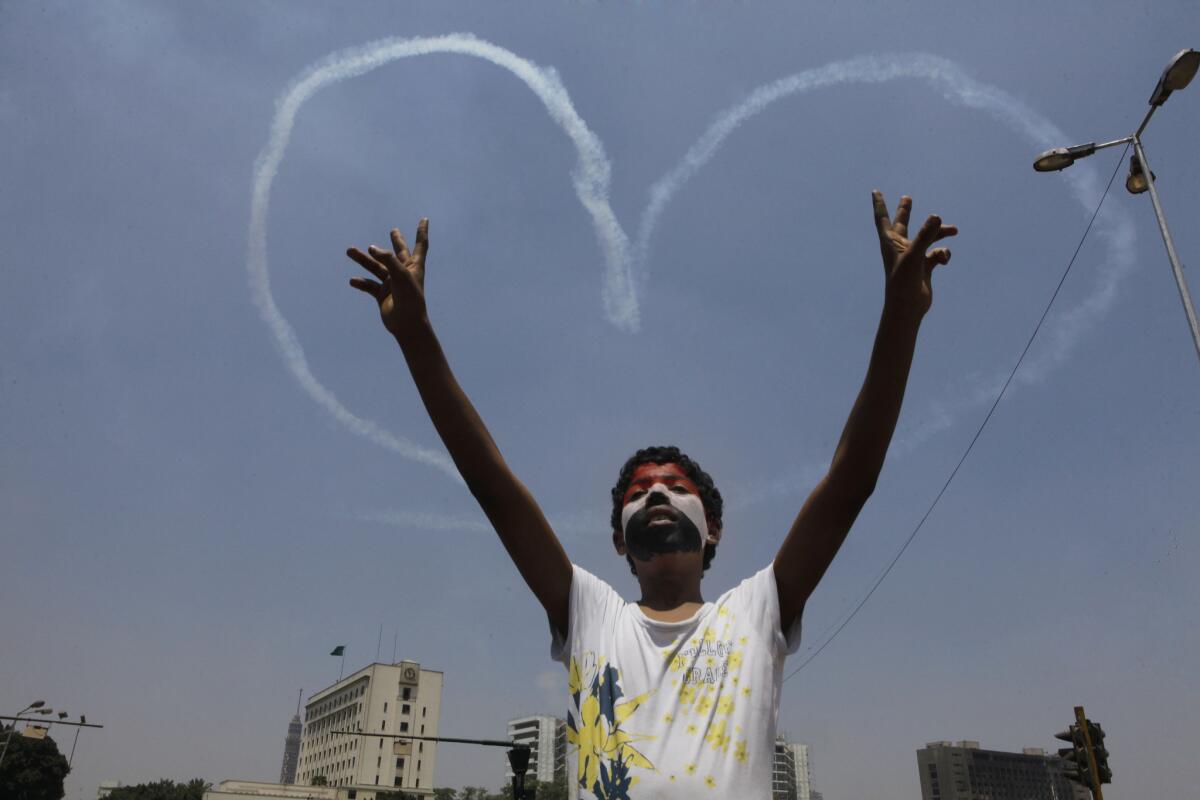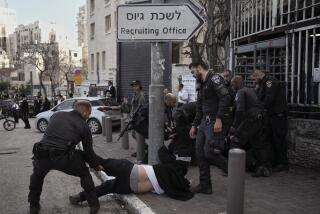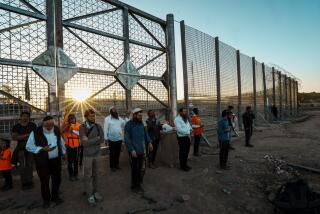Brotherhood ouster in Egypt may clear way for stricter Islamists

CAIRO -- The military coup that ousted President Mohamed Morsi and the Muslim Brotherhood this week could open the way for an even more conservative Islamist faction to make a run for the Egyptian leadership.
Nader Bakar of the ultraconservative Nour Party backed progressive Islamists during last year’s political campaigns but may be less inclined this time around to stifle aims of bringing the purest form of Islam into the politics of a country whose population is 90% Muslim.
As Egypt again braces for elections, Nour and other Salafi parties can be expected to advance their agendas against a revival of secular and moderate voices rising from an opposition backed by the army.
Islamists across the region are outraged over the fall of the Brotherhood and the arrest of its leaders by an army they condemn for deposing Egypt’s first freely elected president. But amid the fury are questions over how to keep the goal of political Islam alive, not only here but in other countries, such as Tunisia and Libya, rising from the upheavals of the “Arab Spring.”
Some wonder whether Islam in its purest form has a place in politics. Many clerics regard the form of Islam embraced during Morsi’s short tenure as a compromise over the imposition of God’s will. The coup made Islamists even more suspicious of the ballot box and is forcing them to decide how to merge religion and politics at a time when the trend in Egypt, especially among the young, appears to be to separate the two.
Given the Brotherhood’s setback, with its leaders under arrest and pro-Morsi protesters confronted by security forces, ultraconservatives are looking for an opening.
The Salafis will be “a winner in this phase and will be the leader of political work in the Islamist current because they calculated the recent political equation very nicely,” said Gamal Sultan, an analyst and newspaper editor. “They have been rational and well thought out ... but it’s a gamble.”
Nour won about 25% of the vote in last year’s parliamentary elections and became a nominal ally of the Brotherhood, which won nearly 50%. While the Brotherhood hewed to authoritarian tendencies, Nour was more fluid, at times siding with the secular opposition against power grabs by Morsi and the Brotherhood.
Although its members didn’t participate, Nour, wanting to avoid bloodshed and sensing a political opportunity, sided with this week’s anti-Morsi protests. The party backed the army’s plan for a coalition government for the transition and blamed the Brotherhood for tilting Egypt toward civil war. Bakar accused the Brotherhood of making “an enemy out of anyone who criticized or disagreed with them.”
That stance, however, may have been a miscalculation. Salafis are divided now over the fall of the Brotherhood. Many pro-Morsi supporters at a rally Friday denounced Nour as betraying the country’s first Islamist president. Ironically, in the eyes of strict Salafis, Nour made the same mistake as the Brotherhood: sacrificing religious principles for political power.
“We are in a new arena of contradictions,” said Sultan. “Nour is now finding itself somewhat ostracized within the mainstream Islamist movement because of its support for military intervention.”
Passions surrounding the coup were further inflamed Friday when soldiers opened fire on Islamists marching toward the headquarters of the Republican Guard, where Morsi was believed to be in custody. The incident is likely to embolden its rival Gamaa al Islamiya, a formerly terrorist group that backs Morsi, and put further pressure on Nour over its political maneuvers.
ALSO:
At least one demonstrator reportedly is killed in clashes in Egypt
Pope issues his first encyclical; John Paul II cleared for sainthood
U.N. says it is unable to provide urgently needed aid near Damascus
More to Read
Start your day right
Sign up for Essential California for news, features and recommendations from the L.A. Times and beyond in your inbox six days a week.
You may occasionally receive promotional content from the Los Angeles Times.







